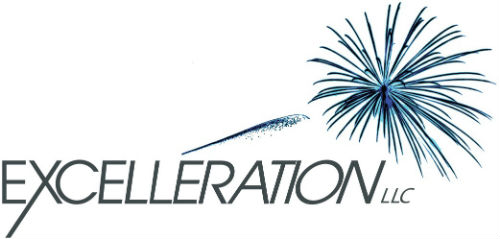Asking for Business: Tips, but No Tricks
/“Can I buy you a drink?”
Have you ever noticed that three people can say the same exact words, but your reaction to each may be completely different? One person may seem sleazy, another may appear desperate, while a third may come across as open and friendly. This doesn’t just apply to men in bars; it is a fundamental rule of interpersonal communication. Often, the specific words you use are not nearly as important as your demeanor and attitude. On some level, we are all aware that non-verbal can trump verbal messages. Who hasn’t experienced a colleague or neighbor using super nice words which were completely negated by the fury or condescension that seemed to emanate from their very pores? We see this type of scenario play out every day. Nonetheless, we tend to forget this lesson when it comes to our own communications. My clients and workshops attendees are always looking for the exact right words to use when asking a client for business. Unfortunately, unlike with Ali Baba’s cave or Cinderella’s fairy godmother, the perfect magic words are not the answer. Rather, it is the WAY you communicate that makes the difference.
To be clear, I am not saying that our choice of words doesn’t matter. We have all heard the famous statistic that only 7% of your message comes through the words you use, while the remainder is conveyed through tone and body language. Since Albert Mehrabian published that research in 1971, countless “experts” have stretched or misquoted it to assert that the words you use don’t matter much. This is certainly not the case when it comes to the content of a Supreme Court argument, a TED talk, or a “how-to” video. Of course, the words and the substance of a communication can be critically important. However, in situations where intent, credibility and character matter, such as business development, the tone of voice and body language often make or break our effectiveness.
There is no shortage of advice available about how to manage the non-verbal aspects of communication. “Make eye contact. Lean forward. Keep your shoulders square to the person you are talking with. Don’t say “um”. Don’t interrupt. Don’t lick your lips. Nod slightly. Speak slowly. Articulate….” The list goes on and on. The problem is that the more we focus on this type of minutia, the less mental energy is available for what is really important, such as figuring out what our clients really want, what are the deeper level concerns underneath their words, looking for ways to serve them better, etc. “Hold on,” you might be saying. “Non-verbal communication is important but I shouldn’t try to fix it?!?!? That doesn’t make sense.” I am suggesting that instead of focusing specifically on tone and body language, a more effective approach is to address the underlying attitudes and beliefs that manifest in those non-verbal messages. That may sound complicated, and at times it can be, but it can also be fairly simple.
Asking for business provides a great example. Lawyers often say that they want to ask for business but they are worried they will look desperate and that the client or potential client will feel pressured. At the risk of making readers want to slap me, I will say it: If you feel desperate, that is likely how you will come across. The good news is that feelings and reality may be quite different. Ninety-nine percent of the time, when lawyers are feeling scared or under severe financial pressure, it is because they have not sat down and looked objectively at the situation, haven’t processed their emotions in a constructive way, or are so strung out and exhausted that they are barely holding on to sanity by their fingernails. If you are measuring your progress and success quantitatively (number of hours billed, contracts signed, etc.) pausing to question assumptions, talk through your frustrations with someone who cares, or get more sleep, may seem like a waste of time. However, these are the types of actions which allow you to actually become the calmer, more grounded and more focused version of yourself—the one who CAN ask for business without creating pressure or looking desperate. How would it feel to know that you could say something like, “When do you want to start?” and that it would just be taking the next logical step in a relationship? When you are exuding ease and connection there is no pressure. For some lawyers, this may require a shift in their thinking and approach, but it absolutely IS achievable. The first step is remembering that effectively asking for business is all in your mind and attitude, not in the words that you choose.


